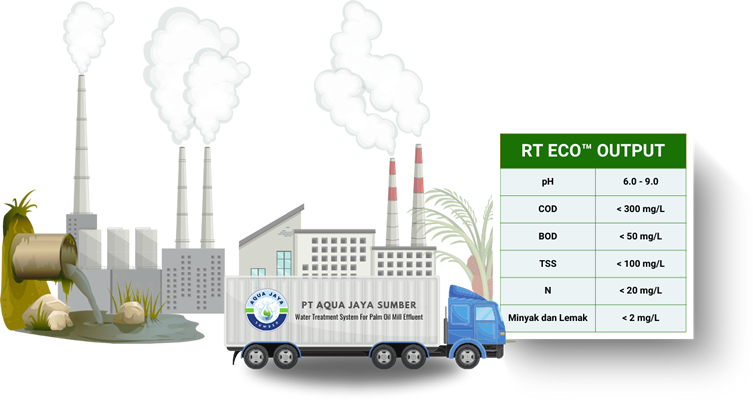Legal Sanctions in Indonesia for Non-Compliance in Palm Oil Effluent Management
In Indonesia, the palm oil industry is required to comply with several regulations related to effluent management to preserve environmental sustainability. Some key regulations include:
Law No. 32 of 2009 on Environmental Protection and Management
This law mandates that all businesses, including those in the palm oil sector, must manage their industrial effluent to avoid environmental pollution.
Companies are required to prepare environmental documents like the Environmental Impact Analysis (AMDAL) as a prerequisite for obtaining operational permits.
Violations of this law can result in administrative sanctions, criminal charges, or business closures.
Government Regulation No. 22 of 2021 on Environmental Protection and Management
This regulation provides detailed guidelines on managing hazardous and non-hazardous effluent. Palm oil industries producing liquid waste must obtain technical approval for
effluent management and an Operational Feasibility Certificate (SLO). Administrative penalties can include fines, permit revocations, or criminal charges in cases of environmental pollution.
Minister of Environment and Forestry Regulation No. 5 of 2021
This regulation tightens the procedures for issuing permits related to the disposal of liquid and solid effluent from palm oil industries.
Companies must treat effluent to ensure it meets environmental standards before discharge. Non-compliance can lead to administrative sanctions or legal action.
Ministerial Decree No. 29 of 2003
This decree outlines guidelines for obtaining permits for the use of effluent, particularly for its use in plantation fields.
Effluent must be treated before use to prevent harm to soil and surrounding water resources.
Companies violating these regulations face sanctions ranging from fines and business license revocation to criminal prosecution.
The Ministry of Environment and Forestry (KLHK) and local governments strictly monitor compliance to ensure proper effluent management.

To address increasing environmental challenges, the palm oil industry is expected to adopt more eco-friendly technologies for effluent management.
Implementing the right technology can reduce negative environmental impacts, such as greenhouse gas emissions. Efficient effluent treatment can also bring economic
benefits, including biogas production, compost, biochar, and livestock feed.
Thus, selecting optimal effluent management technology is critical to maintaining a balance between social, economic, and environmental factors while
supporting the industry’s contribution to global environmental conservation efforts.

